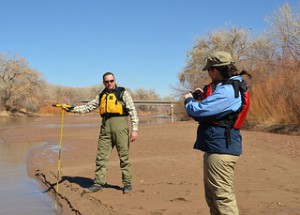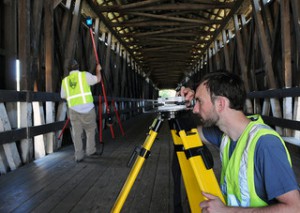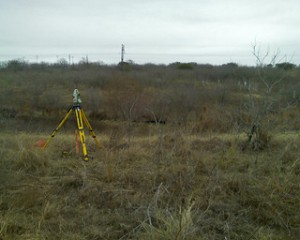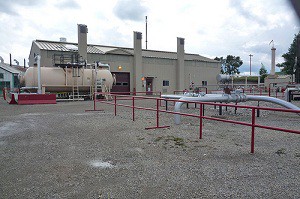What Are The Common Types of Environmental Reviews?
 Landpoint’s environmental consulting team provides a number of different services that help clientsplan and implement projects from start to finish. Our highly trained and experienced team works hand-in-hand with clients to conduct the following types of environmental reviews:
Landpoint’s environmental consulting team provides a number of different services that help clientsplan and implement projects from start to finish. Our highly trained and experienced team works hand-in-hand with clients to conduct the following types of environmental reviews:
Wetland Determination, Delineation, and Permitting
Wetlands provide significant economic, social, and cultural benefits; they are also federally protected. Landpoint’s environmental and wetland staff has extensive training and experience to ensure that your project is not in violation of these precious resources. It is vital that any development project is assessed for any potential jurisdictional wetland impacts. Our staff is trained to recognize wetland criteria and advise our clients on the proper actions to avoid extensive delays, fines, and penalties that can occur when these guidelines are violated.
Spill Prevention, Control, and Countermeasure (SPCC Plan)
SPCC plans are required on all energy production locations, and are vital to the integrity of the environment. These documents include detailed information and procedures in the case of an accidental spill or leak. Landpoint has all resources that are required to complete these plans and implement them for our clients.
Commercial SWD & Class II SWD Well Permitting
The permitting and construction of a commercial saltwater disposal site is a tremendous and extremely timely procedure. Our staff has extensive experience in all aspects of this immense process. Landpoint has all resources to carry out the permit process including site selection, geology, environmental review, mapping, construction, and development of the facility. We ensure that these projects meet all state and federal requirements and are environmentally secure.
These are just some of the many environmental reviews and services offered by Landpoint. Contactour experienced team today to learn more about how environmental reviews can help your project from the planning stage to implementation!
Image By: USACE HQ




 GIS mapping services have transformed the way we perform land surveys and have allowed us to better serve a variety of industries. At Landpoint, we rely on the ESRI ArcGIS suite of core software to incorporate GIS data in every one of our projects. After creating a GIS database from tradition surveys and external datasets, we create online maps that can be accessed instantly and easily on any device by our clients, giving them the information they need to plan successful projects.
GIS mapping services have transformed the way we perform land surveys and have allowed us to better serve a variety of industries. At Landpoint, we rely on the ESRI ArcGIS suite of core software to incorporate GIS data in every one of our projects. After creating a GIS database from tradition surveys and external datasets, we create online maps that can be accessed instantly and easily on any device by our clients, giving them the information they need to plan successful projects.
 Many large projects rely on detailed, accurate maps. Landpoint understands the intricacies of creating accurate technical maps, and we leverage GIS technology to ensure the highest level of accuracy with the most complete sets of data. Read on to learn why GIS is one of the most important land surveying methods available to construction managers.
Many large projects rely on detailed, accurate maps. Landpoint understands the intricacies of creating accurate technical maps, and we leverage GIS technology to ensure the highest level of accuracy with the most complete sets of data. Read on to learn why GIS is one of the most important land surveying methods available to construction managers.
 Land surveying services provide the market’s most accurate maps by using advanced techniques and the most cutting-edge equipment. These maps and the data they include are used to plan efficient solutions to a wide variety of projects.
Land surveying services provide the market’s most accurate maps by using advanced techniques and the most cutting-edge equipment. These maps and the data they include are used to plan efficient solutions to a wide variety of projects.
 GIS consulting services provide critical assistance for planning, maintaining, evaluating and managing the infrastructure of transportation systems around the globe. Intelligent transportation systems are based on the results of GIS consulting, enabling decision makers to prioritize their work and make the best choices. With GIS mapping technology, you can build rich, dynamic and detailed mapping applications that will guide your project from start to finish.
GIS consulting services provide critical assistance for planning, maintaining, evaluating and managing the infrastructure of transportation systems around the globe. Intelligent transportation systems are based on the results of GIS consulting, enabling decision makers to prioritize their work and make the best choices. With GIS mapping technology, you can build rich, dynamic and detailed mapping applications that will guide your project from start to finish.